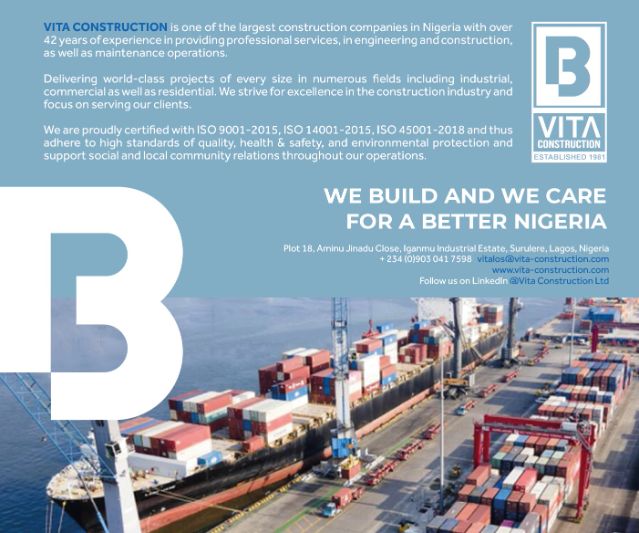John Omoile, who is demanding $36 million in damages, accuses Mr Emefiele of breach of contract, fraudulent inducement, negligent representation and fraud.
The governor of Nigeria’s central bank, Godwin Emefiele, is embroiled in a multi-million-dollar legal battle that has torn apart a once close family relationship. The legal tussle is separate from the troubles he faces over the handling of his job.
Mr Emefiele recently sneaked out and back to the country to avert the possibility of arrest by the State Security Service (SSS), which is accusing him of financing terrorism.
He faces growing criticisms over the policies of the Central Bank of Nigeria (CBN) often blamed for some of the nation’s economic woes and the scarcity of newly introduced currency notes just days before the deadline it set for phasing out the old notes.
Headquarters of the Central Bank of Nigeria (CBN)
As all of these happen, Mr Emefiele quietly grapples with a long-running feud which climaxed in a $36 million suit filed against him by a brother-in-law, John Omoile, in faraway Texas, the United States of America, in 2021.
The legal duel between Mr Emefiele and Mr Omoile is still on at the US District Court in the Northern Texas District.
Mr Omoile is demanding $36 million in damages for the losses he allegedly suffered as a result of the CBN governor’s alleged breach of contract, fraudulent inducement, negligent representation and fraud in course of their business partnerships.
Apart from tearing apart a familial relationship, the feud has defied the larger family’s interventions, recorded a violation of a settlement agreement, and pitted lawyers engaged by both sides in the US against themselves.
The case has passed through at least five Texas law firms apart from the Nigerian lawyers keeping watch over the Nigerian end of the battle on behalf of the warring parties.
With the case just starting in court for the third time, Mr Omoile has indicated it will cost him $200,000 in attorney’s fees.
Mr Emefiele, too, has complained to the court that it will be extraordinarily burdensome for him to defend himself in the US, where he does not reside.
He has urged the court to dismiss the suit and hold that Nigeria is the appropriate jurisdiction to pursue the case, for reasons including the fact that the settlement agreement which covered all the issues between him and Mr Omoile was signed in Nigeria in 2014.
Background: Emefiele Vs Omoile
Mr Emefiele’s wife, Margaret, and John Omoile, a dual citizen of Nigeria and the US, are cousins raised in their teenage years by an aunt in Agbor, Delta State, South-south Nigeria, according to documents filed in court.
The bond between them was so strong that they regarded each other as siblings. When Margaret got married to Mr Emefiele, the CBN governor had no difficulty regarding Mr Omoile as his brother-in-law.
Court documents described in compelling detail the rosy past of their family relationship.
Mr Emefiele visited and stayed with Mr Omoile’s family in Texas, US, during some of his vacations. He described how he lavished Mr Omoile with gifts, money, and business opportunities over the years.
Also remembering their once affectionate family relationship, Mr Omoile said of how they “shared homes, spent holidays and family gatherings together, have been close family friends, and as detailed below, became business partners/joint venturers.”
Mr Omoile, on different occasions, helped the Emefieles to buy houses in his neighbourhood in Coppell, Texas.
Drawing from the familial bond, mutual trust and goodwill they had built in each other for decades, their rapport flourished and grew into a business partnership in 2004.
They sent funds to each other for personal investments and joint ventures in Nigeria and in the US.
But in the unsavoury turn of events, the previously trusted relatives now accuse each other of fraud, greed, deception, and extortion. The CBN governor, who vehemently denied wrongdoing, said the suit currently “is simply another attempt to extort $36 million” from him.
Zenith Bank stock investments
In 2004, Mr Omoile said he paid Mr Emefiele $50,000 for the purchase of an Initial Public Offering (IPO) investment in Zenith Bank in Nigeria, where Mr Emefiele was then an official.
Zenith Bank Plc
In 2007, Mr Omoile received 200,000 additional shares from Mr Emefiele as a gift.
Mr Emefiele became the managing director of Zenith Bank in 2010 and the governor of the CBN in 2014.
Mr Omoile said he often raised questions but has yet to get an answer about the wide range of issues, including dividends issued, but not paid, the prices at which certain stock shares were supposedly acquired for him, “and the prices at which Defendant Emefiele actually acquired the shares.”
He accused Mr Emefile of continuing to “use his position as former Managing Director and current Governor of the Bank of Nigeria to actively prevent Plaintiff Omoile from getting a full and accurate accounting for his shares.”
Mr Emefiele and a contentious oil and gas partnership
In a related development, Mr Omoile recalled that in 2007, he, Mr Emefiele and one Pius Oyibo signed a tripartite agreement in Coppell, Texas, to form an oil and gas company on 7 December 2007. The proposed firm, called Noka Energy Nigeria Limited, was to buy, sell and transport petroleum products in Nigeria.
Mr Omoile recalled that he made several trips and several contacts on behalf of the partnership to Houston, the Caribbean, and Nigeria to meet with oil and gas executives.
He recalled Mr Emefiele’s investment into the venture to include $200,000 sent to him for the purchase of 10 truck heads from LKQ in Houston for the partnership.
He said he bought the truck heads, the number not specified, and shipped them to Nigeria, for the business.
He said he would later discover that Mr Emefiele did not incorporate Noka Energy Nigeria Limited as agreed, but instead formed Dummies Oil and Gas for himself.
Real estate business
In 2006, while the other business discussions between them were going on, they formed a partnership called Rosewood Malcom LLC which would buy, sell and develop real estate properties in the US.
The business plan, according to Mr Omoile, included him taking mortgages in his name for the benefit of the joint venture.
He said profit and loss were to be shared equally between the partners, but that that was not the case eventually.
He said once the joint venture started, profits were shared, however, losses were left for him to bear.
According to him, the venture acquired a property at 7026 W. 43rd Street, Houston Texas, for $141,000.
He also said he took a personal mortgage in his name for $167,000 from Wachovia Bank.
He recalled that as the properties’ market value crashed during the US economic meltdown between 2008 and 2009, he continued to be responsible for the substantial financial burden of mortgage servicing without any help or assistance from Mr Emefiele.
He added that he purchased a property in 2008 in Coppell with $360,000 sent by Mr Emefiele.
But he said he was bearing the tax liabilities on the properties from his personal business accounts. According to him, the total personal loss he incurred for the real estate partnership and out-of-pocket expenses meant to be paid by Mr Emefiele was at least $500,000.
Mr Emefiele offers defence
Mr Emefiele has yet to formally file a defence to the suit, but his side of the story can be gleaned from the troves of documents he attached as exhibits to his preliminary court filings.
In a letter dated 17 January 2022, Mr Emefiele’s lawyer, Nitor Egbarin, denied the allegations raised in previous ‘legal demand’ letters which Mr Omoile’s lawyer, Donald Kaiser Jr, sent directly to the CBN governor.
In the strongly-worded letter, Mr Egbarin said his client was not involved in the management of Mr Omoile’s Zenith Bank’s shares and could not have blocked access to the records of the investments.
He said the fact that Mr Omoile used the CBN governor’s business address as his contact address for receiving his brokerage account statement “is not a proof that my client had legal responsibility for managing John’s money in the brokerage account.”
He said his client is no longer the Managing director of Zenith Bank and is not Mr Omoile’s stockbroker.
“Your legal demand must be directed at John to provide you with his Zenith Bank accounts which he opened in Agbor and in Lagos. Proceeds from John’s brokerage account are deposited into John’s bank accounts in Lagos and in Agbor,” the letter read in part.
Also denying his client’s alleged breach of financial obligation to their real estate venture, Mr Egbarin went down memory lane, highlighting Mr Emefiele’s investments in the venture and financial assistance he had rendered to Mr Omoile.
He recalled that in 2006, Mr Omoile took out $200,000, using a pre-signed cheque, from Mr Emefiele’s bank account, and never accounted for the money meant to be used for estate development in Houston.
He said instead of using the money to develop the Houston property, Mr Omoile and his wife, on 17 January 2007, took out a $167,650 construction mortgage with Wachovia Mortgage.
He also recalled Mr Emefiele sent another $40,000 to Mr Omoile in 2009 for the purchase of a second real estate property on the plot next to the first property in Houston.
Tired of the frustrations from the investments, Mr Emefiele, according to his lawyer, decided to stop providing financial support to Mr Omoile in 2012.
But, the lawyer said, with a settlement agreement the brothers-in-law singed on 26 April 2014, Mr Emefiele agreed to relinquish all his rights in the two properties in Houston to Mr Omoile valued at over $207,650.
He said Mr Emefiele also paid off the Wachovia Mortgage balance of about $155,000.
He said the CBN governor also sent $250,000 requested by Mr Omoile to clear unpaid income tax in 2020.
He said, from 2006 to 2020, Mr Omoile had received at least $645,000 in cash in financial support from Mr Emefiele.
But he did not address the issue of the failed oil and gas business plan.
‘No more free food’
Mr Egbarin’s letter went beyond defending his client. It was an unsparing frenzied personal attack on Mr Omoile and his lawyer.
The letter describes Mr Emefiele as “a wealthy banker” and former chief executive officer of “the largest bank in Nigeria and West Africa” who has been “a generous donor, benefactor and breadwinner” to Mr Omoile over the years.
The CBN governor, according to the letter, “took care of John (Mr Omoile) as one would do of a brother-in-law,” providing “financial support to John and his wife and his children over the years.”
In a rather demeaning manner highlighting how much the relationship between the in-laws has soured, Mr Egbarin said his client was no longer prepared to continue to feed Mr Omoile. “You should advise John that my client does not wish to continue to feed him. John should pursue other means to make a living rather than continue to shakedown my client for more financial support.”
Turning on Mr Kaiser, Mr Egbarin accused him of incompetence and of having little understanding of the area of law he was handling for Mr Omoile.
He also accused the lawyer of making false claims about Mr Emefiele and of unethical practice by bypassing him to write directly to the CBN governor.
He said Mr Emefiele, on becoming the CBN governor, became a target for a lawsuit in Nigeria engaged by Mr Omoile for “harassment demanding monies for matters that had been settled in the 2014 Settlement Agreement.”
He said the letters of demand sent severally to Mr Emefiele to account for Mr Omoile’s shares is “an attempt to shakedown/extort my client for money.”
He ended the letter with a devastating salvo to Mr Omoile. “Finally, there is still nothing more my client will do for John. The gravy train has come to a stop.”
Failed settlement meetings
Members of the larger family called a series of peace meetings attended by the brothers-in-law to settle their disputes.
The meetings were held in Nigeria. Some of the meetings were also held via Zoom.
They finally reached an agreement in 2014.
With the hope of getting “relief from the mounting debts” resulting from the real estate losses since 2007, Mr Omile said, he signed the agreement with Mr Emefiele on 26 April 2014.
But both sides have accused each other of violating the agreements.
The family also again called a series of Zoom meetings to resolve the disputes in April 2020.
But in what would be the last straw, according to Mr Omoile, Mr Emefiele declared through his wife, Margaret, who represented him at one of the Zoom meetings, that there was never an intention to form and operate a joint oil and gas firm.
Mr Omoile said he realised then that he had been “induced with false statements and promises” to enter into a partnership with Mr Emefiele. He also said he realised that Mr Emefiele ”never intended to follow through with his past promises”.
Unending Legal battle: Emefiele Vs Omoile
With settlement talks over, Mr Omoile took the decision to sue Mr Emefiele after the Zoom meetings in 2020.
In July 2021, he hired a Texas attorney, Kenneth Onyenah, who filed the suit claiming economic and actual damages against Mr Emefiele for the losses he allegedly incurred as a result of the CBN governor’s alleged failure to fulfil his financial obligations to him and their joint ventures.
He filed the suit at the US District Court of the Northern District of Texas.
But shortly after the filing, the lawyer withdrew the suit.
Mr Omoile said the lawyer withdrew the suit without prior communication or his authority in August 2021.
He added that the lawyer took the step after he was threatened by Mr Emefiele’s lawyer, Mr Egbarin. But Mr Egbarin said the lawyer withdrew the case after realising it had no merit.
Later in 2021, Mr Omoile hired Donald Kaiser Jr. to reopen the case.
On 12 May 2022, Mr Kaiser refiled the suit at the 68th Judicial District Court in Dallas County, Texas.
But following Mr Emefiele’s objection, the suit was removed from the state court “on the basis of diversity jurisdiction” to a federal court, the US District Court of the Northern District of Texas.
A new lawyer named Ewomazino Magbegor is now representing Mr Emefiele following the refiling of the case.
Mr Magbebor is the second lawyer known on record to have defended the CBN governor in the matter in the US. From Mr Egbarin’s letter, the plaintiff, Mr Omoile, has engaged at least three lawyers in respect of the case.
Mr Emefiele’s new lawyer, in November 2022, filed an application to challenge the service of the suit on the CBN governor through substituted means. He also sought the dismissal of the suit on the grounds that the court lacked jurisdiction on the matter.
The court’s decision on the application will determine the future of the case.
Source: Premium Times








